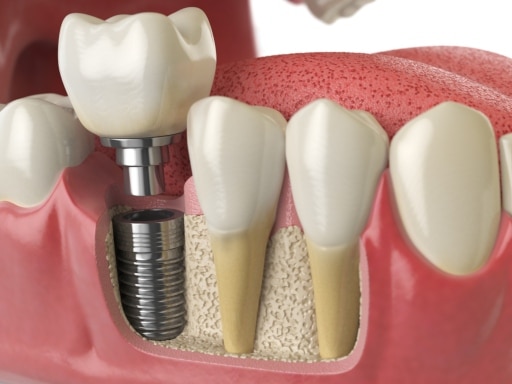Call: (630) 812-7929
The Pros And Cons Of Dental Implants: A Balanced Analysis


Dental implants have revolutionized the field of dentistry, offering a long-term solution for missing teeth. However, like any medical procedure, they have advantages and disadvantages. In this blog, we will delve into the pros and cons of dental implants, providing you with a balanced analysis to help you make an informed decision.
The Pros Of Dental Implants
Restored Functionality:
Dental implants function just like natural teeth, allowing you to eat, speak, and smile with confidence. Unlike dentures, they are securely anchored to your jawbone, eliminating concerns about slipping or discomfort.
Improved Aesthetics:
Implants are designed to mimic the appearance of natural teeth, providing a seamless and natural-looking smile. They can fill gaps, restore facial structure, and enhance overall facial aesthetics, boosting self-confidence.
Durability and Longevity:
With proper care, dental implants can last a lifetime. They are made of biocompatible materials such as titanium, which fuse with the jawbone through a process called osseointegration. This results in a sturdy and durable foundation for replacement teeth.
Preserved Oral Health:
Dental implants do not require altering adjacent teeth for support, unlike traditional bridges. This preservation of natural teeth structure promotes better oral health and makes it easier to maintain good dental hygiene habits.
The Cons Of Dental Implants
Surgical Procedure:
The process of getting dental implants involves oral surgery, which can be intimidating for some patients. It typically includes multiple appointments, healing time, and potential discomfort during the recovery period. However, advancements in technology have made the procedure minimally invasive and significantly improved patient comfort.
Time-Intensive Treatment:
Dental implant treatment usually requires several months to complete. This is because the implants need time to fuse with the jawbone before the final restoration can be placed. If you require additional procedures like bone grafting, the overall treatment time may be longer.
Potential Complications:
Although rare, complications can occur with dental implants, such as infection, nerve damage, or implant failure. However, with proper oral hygiene practices and regular dental check-ups, the risk of complications can be significantly reduced.
Dental implants offer numerous benefits, including restored functionality, improved aesthetics, and long-term durability. However, they also come with certain drawbacks, such as the cost and time commitment involved. It is essential to consult with a qualified dentist or oral surgeon to assess your individual situation and determine if dental implants are the right choice for you.
Remember, the pros and cons mentioned in this blog are general considerations, and your specific circumstances may vary. By thoroughly understanding the advantages and disadvantages, you can make an informed decision regarding dental implants and work towards achieving a healthy and confident smile.





